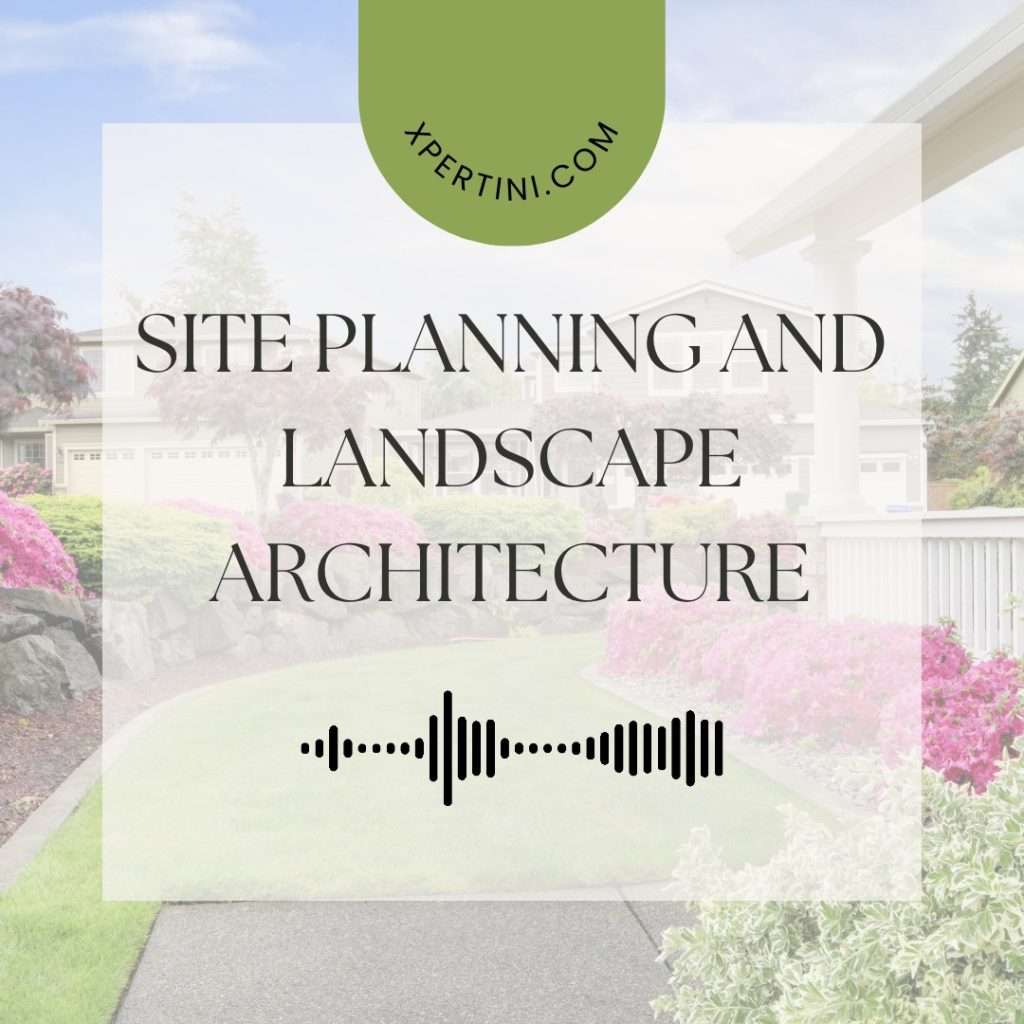Site Planning and Landscape Architecture
Course Summary
This comprehensive course provides a thorough understanding of site planning and landscape architecture, catering to professionals in architecture, urban planning, environmental design, and related fields. Participants delve into foundational principles, techniques, and applications crucial for effective site design and development. Through engaging lessons, students learn to identify and analyze site characteristics and constraints, applying design principles to craft functional and aesthetically pleasing landscapes. They explore the intricate relationship between environmental factors and sustainability, gaining proficiency in site analysis, conceptualization, and presentation skills.
Participants examine the historical evolution and contemporary trends in landscape architecture, drawing inspiration from influential figures and movements in the field. Moreover, the course equips learners with technological tools for site analysis and design visualization, preparing them to integrate innovative solutions into their practice.
With a focus on urban landscape design, participants explore the pivotal role of landscape architecture in shaping urban environments and promoting green infrastructure. Additionally, they gain valuable insights into career pathways and opportunities within the field, alongside professional development resources and networking avenues. By the course’s conclusion, participants emerge with a holistic understanding of landscape architecture, equipped to apply their newfound knowledge and skills to real-world projects, making a meaningful impact in their respective fields.
Course Overview
This course provides a comprehensive understanding of site planning and landscape architecture, crucial for professionals in architecture, urban planning, environmental design, and related fields. It covers foundational principles, techniques, and applications necessary for effective site design and development.
Course Objectives
nalyze site characteristics and constraints for effective design solutions.
Apply design principles and techniques to create functional and aesthetically pleasing landscapes.
Evaluate environmental and sustainability factors in site planning and landscape design.
Develop proficiency in site analysis, conceptualization, and presentation skills.
Explore the role of landscape architecture in urban development and environmental conservation.
Understand the historical evolution and contemporary trends in landscape architecture.
Collaborate effectively with multidisciplinary teams in site development projects.
Explore career opportunities and pathways in the field of landscape architecture.
Course Outcomes
Identify and analyze site characteristics and constraints.
Demonstrate proficiency in applying design principles to create functional landscapes.
Evaluate environmental impacts and sustainability factors in site planning.
Develop skills in conceptualizing and presenting landscape design proposals.
Understand the historical evolution and key concepts in landscape architecture.
Collaborate effectively with professionals from diverse backgrounds in site planning projects.
Integrate technology tools for site analysis and design visualization.
Explore cultural and social factors influencing landscape design decisions.
Explore career paths and opportunities in the field of landscape architecture.
Course Audience
Students pursuing careers in architecture, urban planning, and environmental design.
Professionals seeking to enhance their skills in site planning and landscape architecture.
Individuals interested in exploring the intersection of design, environment, and community development.

